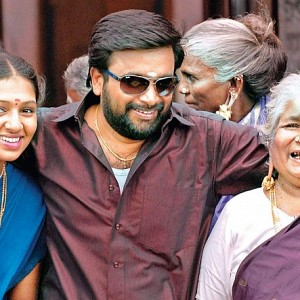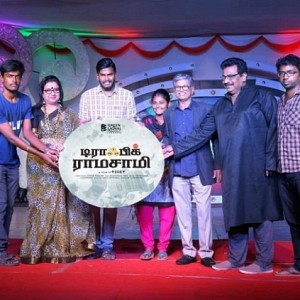
If there is a common thread connecting the movies Zodiac, In the Realm of Senses, Memories of Murder, No One Killed Jessica, Black Friday, and Theeran Adhigaaram Ondru, it might be difficult locating a converging point. All these movies bear the tag, “based on true events,” in varying degrees. On the other hand, movies like Scream, Fight Club, American Psycho, Drishyam, Dhoom, and Special 26 are flagged for inspiring crimes in real life. The connection between cinema and real-life crimes is as mysterious as the question, “Whether stranger than cinema, stranger than life?”
The degree of this mystery varies according to societies and how they deal with cinema as a vehicle of popular culture. In Tamil Nadu, where cinema is an integral part of public life, the boundaries of life on silver screen and in reality blur again. The grey zone shared by the cinema and real life started buzzing again when a college student was brutally murdered by a stalker a couple of days back in Chennai. According to reports, the accused young man perpetrated the cruel act after the girl rejected his love. The full story behind this crime is yet to be found out.
The brutal murder is the latest in a series of such murders and assaults, all of which sparked heated arguments about the connection between cinema and real life. Tamil cinema witnessed the rise of larger than life heroes and their cult following since the 1950s. As the heroes got bigger and stronger, the heroines became mere beauty icons who have nothing to do except romancing, waiting and wailing for the hero. By the 80s, the hero stalking a cute heroine became a norm and winning or losing the girl turned out to be the cathartic climax for the moviegoers.
When tracing the evolution of the hero as a stalker and heroine as a victim, cinema falls into the damned side first hand. Since it is the most popular form of entertainment, with an enormous reach and range all over the state, cinema often bears the blame for inspiring stalker murders and assaults. But, in a closer observation, it is clear that the cinema reflects the society as much as the society reflects cinema. As we cross-examine the evolution of hero and heroine over the years of Tamil cinema, it is evident that the mainstream cinema very closely follows the changes in the society.
These social changes are often invisible or hidden among multiple layers of the society, but become visible on the silver screen. The man-woman relationships and expressions of love have been going through complex changes since the 1950s, which include renewed class boundaries, caste prohibitions, physical and appearance norms, and religious equations. As a cultural vehicle moving along with and very close to the society, these changes are first palpable in cinema. Condemning a movie for inspiring a horrific murder sounds like resenting the mirror image for not looking attractive enough.
Cinema is a product of the society, and numerous forces controlling it, as much as the criminals and crimes are. Showering all the anger and frustration on cinema after every unfortunate crime is whitewashing the perils buried in the society, and in that sense, it is downright escapism. A crime originates in a society only when it has the necessary social conditions to trigger it. If a moviegoer is frustrated because he can’t win the heart of his dream girl after months of stalking, whereas his onscreen idol, the hero wins the girl after 2 hours of stalking, it is because of the economic, cultural and political barriers prevailing in the society.
Cornering movies for that is simply masking those societal forces acting on the individual, which may turn murderous and take innocent lives. Unless and until the society gets rid of the invisible walls of caste, class, colour, and prejudices, movies will be made on those contradictions, and people will continue to identify with the protagonists. This makes it problematic to say, “based on real events” or “inspired from cinema,” as cinema and society are two mirrors reflecting each other.
Behindwoods is not responsible for the views of columnists.
FACEBOOK COMMENTS
OTHER LATEST BEHINDWOODS COLUMNS
RAGESH DIPU'S OTHER COLUMNS
- Arya's Enga Veetu Mapillai: A reality check on the reality shows
- The Politics of Open Breastfeeding
- The Blackness of Kaala and Portrait of the Superstar as an Actor
- Sridevi, the first heroine to crack the male supremacy in Indian Cinema
- Chekka Chivantha Vaanam - Why we yearn for a Mani Ratnam film
- Why Naachiyar is not a Typical Bala Film, but More
- From Kolaveri to Priya Prakash Varrier, And How #hashtags Grow Bigger Than the Movies!
- From Mahesh to the Fakir: The Extraordinary Journey of Dhanush
- The attacks and assaults on actresses, or should we say, women
- A question at the time of the theatre shutdown: Why are we going to the movies?
- From Anbe Sivam to Velaikkaran - How Tamil Cinema dealt with consumerism
- How Malayalam and Tamil cinemas exchanged actors
- The Many Lives of Fahadh Faasil
- The Suriya body shaming incident - Are you sure you have not done it too?
- Aruvi: A genre-bender, a trailblazer and the making of a cult









